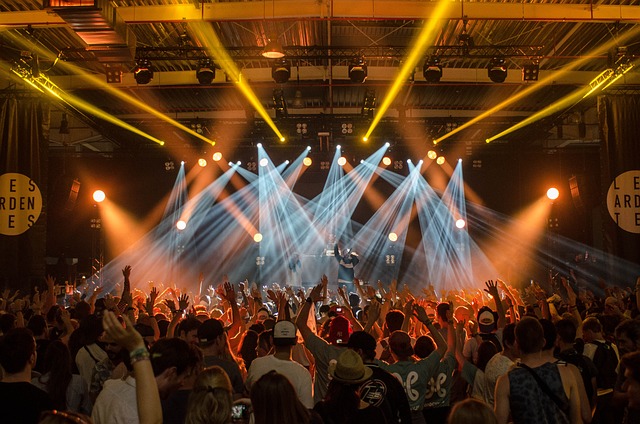Event planning for local businesses has been transformed by the strategic use of social media as a key marketing and engagement tool. To maximize visibility and target audience reach, businesses should employ a mix of popular yet less competitive hashtags that align with their event's theme or industry. These tags facilitate content navigation to both local communities and broader interest groups. Selecting the right platforms—Facebook for RSVP tracking, Instagram for visually appealing content, Twitter for real-time engagement, and LinkedIn for professional networking—is essential for successful promotion. Digital events can further enhance a business's online presence by engaging with a wider audience through interactive features like live polls, Q&A sessions, and quizzes. Pre-event marketing campaigns build anticipation, while real-time analytics on the day of the event ensure content is optimized for peak engagement. Post-event analytics are crucial for understanding audience behavior, preferences, and the event's ROI, allowing businesses to refine their strategies and improve future events. Social listening tools provide additional insights for continuous improvement, all contributing to stronger customer relationships and business growth over time within the realm of event planning for local businesses.
Navigating the digital landscape, local businesses can harness the power of social media events to captivate audiences and amplify their brand presence. This comprehensive guide delves into the nuances of effective event planning, from strategically leveraging hashtags and platforms for promotion to crafting engaging content that fosters audience interaction during virtual gatherings. Post-event, analytics serve as a crucial tool for measuring success and gleaning valuable insights, ensuring each digital experience is more impactful than the last. Mastering these elements elevates event planning for local businesses to new heights on the social media frontier.
- Leveraging Hashtags and Platforms for Effective Social Media Event Promotion
- Strategies for Engaging Content Creation and Audience Interaction During Virtual Social Media Events
- Measuring Success and Gathering Insights with Analytics After Local Business Social Media Events
Leveraging Hashtags and Platforms for Effective Social Media Event Promotion

In the realm of event planning for local businesses, social media serves as a powerful tool for promotion and engagement. To effectively harness this potential, leveraging hashtags is crucial. Hashtags act as beacons, guiding content to the right audience. By identifying trending and relevant hashtags related to the event, businesses can increase their visibility and reach among interested parties. For instance, using localized hashtags alongside broader event-related tags can attract both a niche audience within the community and a wider demographic that shares common interests. It’s advisable to conduct thorough research on popular and less competitive hashtags specific to the event’s theme or industry. This approach not only amplifies the event’s presence but also fosters connections with potential attendees, sponsors, and influencers who can further propagate the event details.
Choosing the right social media platforms is equally important when planning an event for local businesses. Each platform has its unique strengths and user demographics. For instance, Facebook’s events feature allows for comprehensive detail sharing and RSVP tracking, while Instagram’s visual orientation can showcase the event’s ambiance, speaker profiles, or past successes through images and videos. Twitter can be leveraged to engage in real-time conversations with followers and trendsetters, using the event’s hashtag to keep the momentum going. LinkedIn, on the other hand, is ideal for professional events, allowing businesses to network with potential clients and partners. By strategically utilizing these platforms, local businesses can not only create buzz but also drive significant participation and attendance at their social media events.
Strategies for Engaging Content Creation and Audience Interaction During Virtual Social Media Events

Crafting engaging content and fostering audience interaction are pivotal components of successful virtual social media events, particularly for local businesses looking to expand their digital footprint. A strategic approach to content creation involves a blend of educational, inspirational, and entertaining material that resonates with the target demographic. Utilize high-quality visuals and multimedia elements to captivate attendees; for instance, incorporating live polls, Q&A sessions, and interactive quizzes can significantly boost engagement levels. Prior to the event, engage potential participants by teasing content through social media stories, posts, and email marketing campaigns, ensuring a steady buildup of anticipation and interest.
During the virtual event, local businesses should leverage real-time analytics tools to monitor audience feedback and interaction, allowing for on-the-fly adjustments to content delivery. Interactive features such as live chat, comment sections, and virtual networking opportunities can create a more immersive experience. Additionally, training moderators or staff in effective communication techniques will ensure that any questions or comments are addressed promptly, maintaining high levels of audience engagement throughout the event. By combining thoughtful content planning with interactive elements tailored to local business audiences, event planners can enhance the virtual event experience and achieve greater reach and impact.
Measuring Success and Gathering Insights with Analytics After Local Business Social Media Events

When local businesses host social media events, measuring success and gathering insights becomes pivotal to understanding engagement and ROI. Post-event analytics serve as a compass for event planning for local businesses, offering data-driven insights that highlight what resonated with the audience and what did not. Key performance indicators (KPIs) such as attendance rates, engagement metrics, and conversion rates are instrumental in this process. By tracking these metrics across various platforms—Facebook Events, Instagram Live sessions, or Twitter chats—businesses can pinpoint the effectiveness of their marketing strategies and content delivery.
Moreover, analytics platforms provide a comprehensive view of user demographics, behavior patterns, and preferences, enabling businesses to tailor future events more effectively to their target audience. The integration of social listening tools further enhances this capability by monitoring real-time sentiment and feedback, thus offering actionable insights into audience satisfaction and areas for improvement. This not only informs event planning for local businesses but also contributes to a more dynamic and responsive social media presence that can foster long-term customer relationships and drive business growth.
Effective event planning for local businesses in the digital realm hinges on the adept use of social media. By strategically leveraging hashtags and selecting appropriate platforms, businesses can amplify their event promotion. Engaging content creation and interactive strategies are crucial to maintaining audience interest during virtual events. Post-event analytics provide valuable insights into success metrics, enabling informed decision-making for future endeavors. In essence, mastering social media event management not only captivates audiences but also offers local businesses a platform to thrive in the ever-evolving online marketplace.






